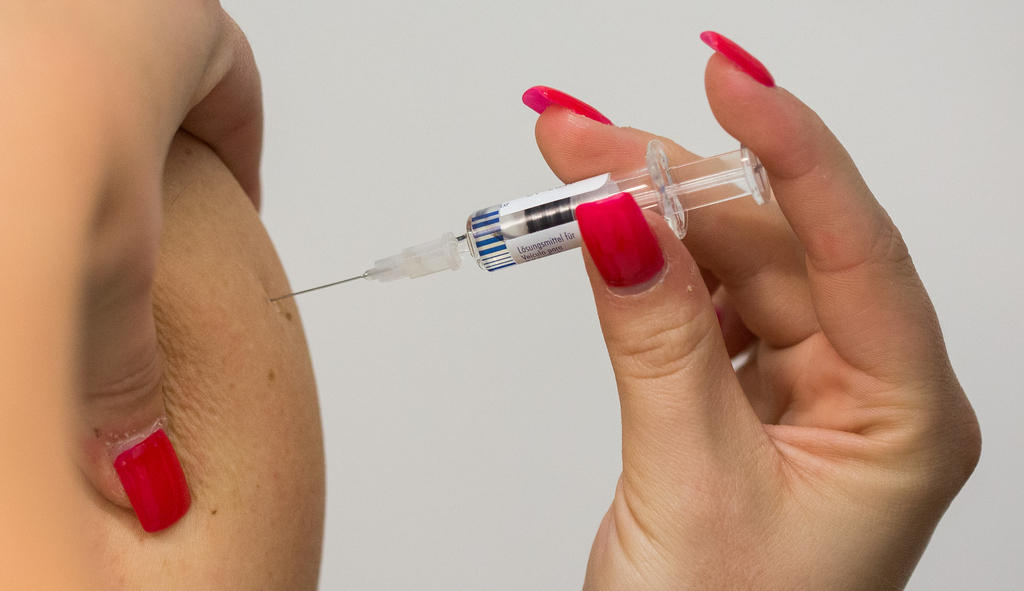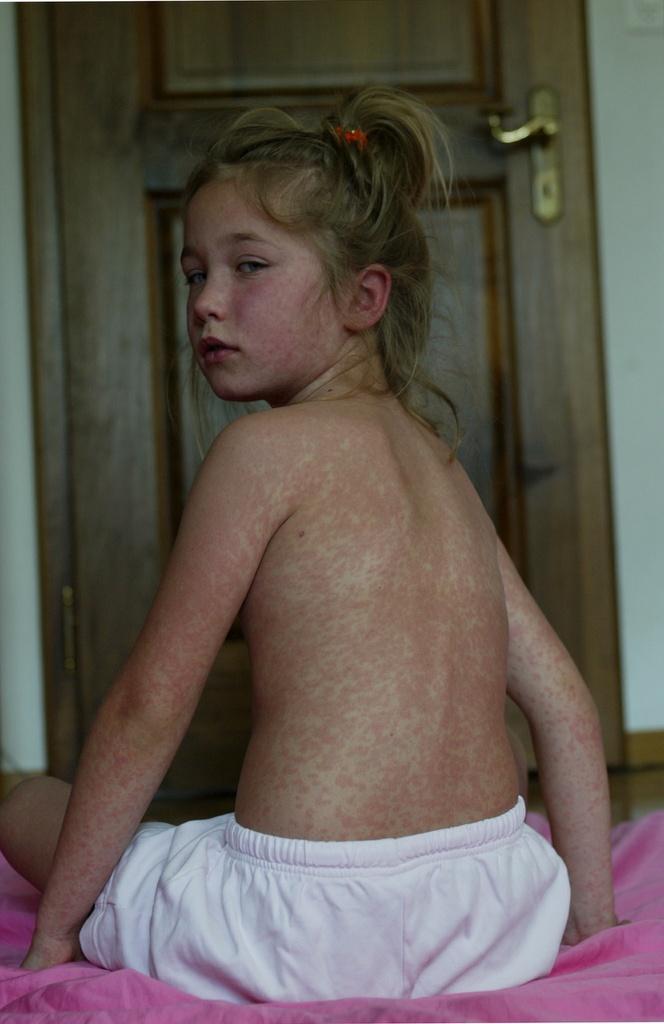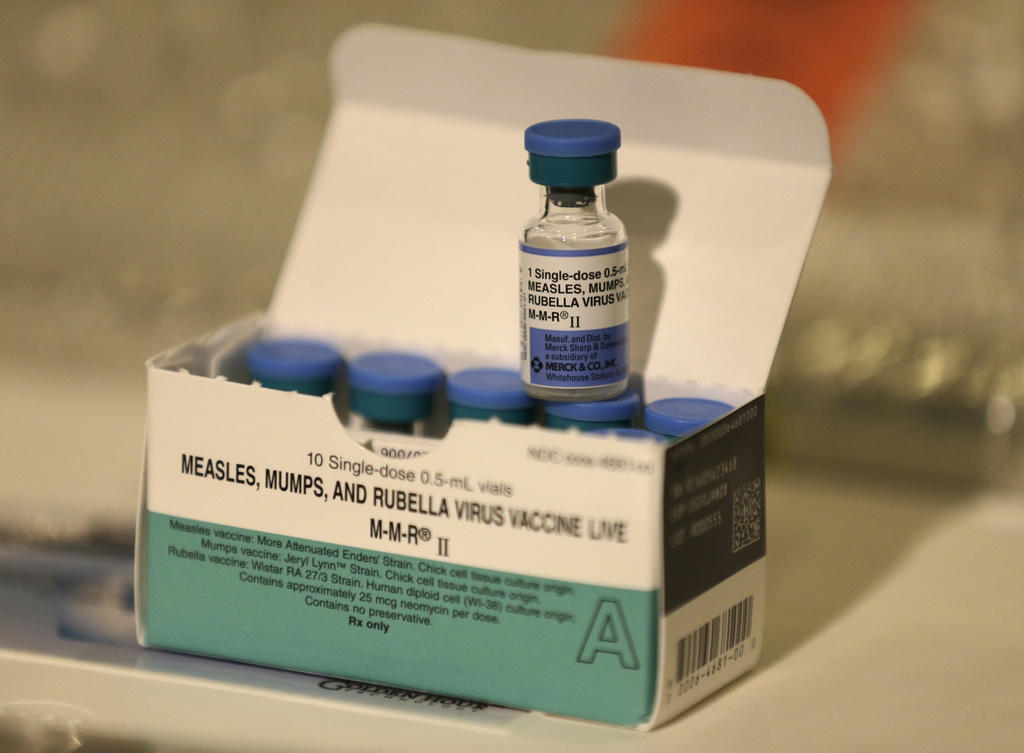
Vaccine scepticism – a phenomenon in affluent societies

Some parents in Switzerland make a conscious decision not to have their children vaccinated, which prevents the full eradication of certain diseases. What are their motives?
At the beginning of February, there was an outbreak of measles at a Rudolf Steiner private school in Switzerland. The authorities suspended 60 unvaccinated children to prevent the disease from spreading further.
This was not the first time that a Steiner school had experienced a measles outbreak. A spokesman for the Federal Office of Public Health told Swiss media that the high incidence of measles in Steiner schools was no coincidence. These schools teach according to the pioneering Waldorf education system, which was invented by Rudolf Steiner (1861 – 1925). Steiner considered vaccinations to be problematic. For this and other reasons, some parents only have their children partially vaccinated, or not at all.
In the past, several Steiner school families – and also families whose children didn’t attend – threw parties for their sick child to try to infect as many children as possible with the disease and immunise them in this way.
“Social events for planned infection were organised until the 1990s,” Thomas Didden of the Swiss Rudolf Steiner School Association confirmed. “However, I haven’t heard of a recent case, and I would not recommend it either.”
Didden is unable to say how many children are inoculated at Steiner schools. The institutions do not keep such statistics, nor do they provide parents with recommendations regarding immunisation. “We are educators, not doctors,” Didden stressed.

Disease as development opportunity
To better understand why vaccination coverage against measles may be lower at Steiner schools, swissinfo.ch spoke to Bernhard Wingeier, a specialist in paediatrics and adolescent medicine at the ArlesheimExternal link anthroposophical clinic.
Anthroposophy is a philosophy founded by Steiner in the 19th century that believes in the existence of an objective, intellectually comprehensible spiritual word. According to Wingeier, anthroposophy views humans as much more than just physical creatures. He said this concept of human nature also affects the way we perceive disease in anthroposophical medicine.
“We believe in people’s self-healing powers and we know how to activate them,” Wingeier explained. “In anthroposophical medicine, disease is not just an evil that must be eliminated, it is also part of development, especially in children.” Fever and infectious diseases, he says, give children the opportunity to learn how to get through crises. This has a positive effect on their overall development and the development of their immune systems.
Unlike staunch vaccination opponents, anthroposophical doctors are usually not totally against inoculations. Wingeier, for example, recommends getting vaccinated against tetanus. When it comes to children’s diseases, he gives parents individual advice. “A fundamental element of anthroposophy is recognising individuality,” he said.
It also depends on the parental situation. According to Wingeier, a single working mother is less able to take care of a child suffering from a high fever.
“If parents have the capacities to handle a child with measles, they can wait until puberty to vaccinate,” he commented.
Once the child hits puberty, he recommends vaccinations as the risk of complications is higher in adults.

More
Switzerland sees sharp rise in measles cases
Individualism versus elimination
Anthroposophy’s individual approach is gaining wider interest in Switzerland.
“The fact that people want to find out more and question official recommendations of authorities such as doctors and administrations is a sign of the age of post-modern and personalised medicine,” said Philip Tarr, a senior consultant at the Basel Country cantonal hospital who heads the national research project “Vaccine-sceptical patients and doctors in SwitzerlandExternal link”.
One of the problems is that personalised medicine clashes with the World Health Organization’s (WHO) goal of eradicating certain diseases such as measles. The WHO considers vaccination opponents a global threat.
One problem is that unvaccinated people endanger others who cannot be immunized, such as babies or pregnant women, or people whose immunisation fails. In 2018, for example, a vaccinated man died of measles as his immune system was weakened by chemotherapy. Individualism also collides with the principles of solidarity.

More
Why some Swiss people still get measles
Who are they – and why?
Who are the parents refusing to get their children vaccinated, and why? According to a study, vaccination coverage in Germany is particularly low in affluent regions.
In the US, some unvaccinated children come from well-educated, white upper middle-class families from suburban areas; some come from poorly educated Afro-American families living in disadvantaged neighbourhoods where access to healthcare is limited. There have been outbreaks of disease in isolated communities, such as among Mormons or Amish families.
In Switzerland, a similar trend can be observed.
“We notice that well-educated parents don’t want their children to be vaccinated,” said Mark Witschi, head of vaccination recommendations at the Federal Office of Public Health. Not getting vaccinated has become a phenomenon in wealthy societies. Vaccination coverage is particularly low or non-existent among people claiming to have specialist medical knowledge, supporters of alternative medicine and nature lovers.
However, only 1-3% of the Swiss population are completely against vaccinations and vehemently criticise the pharmaceutical industry.
“The population’s concerns about vaccinations are manifold. They range from immunisation safety, the safety of vaccination additives, to the idea that “living naturally” is better, which means that naturally conceived immunity is better than immunity induced by vaccination,” said Tarr.
There are major differences in vaccination coverage between cantons. This is not only due to the different attitudes of the population – the conservative German-speaking Swiss are generally more sceptical than the French and Italian-speaking Swiss; it is also due to access to inoculations. Coverage is higher in the cantons offering vaccination programmes at schools.
According to Witschi, many Swiss are just negligent and forget about their inoculations. Others think that vaccinations against certain diseases such as measles are simply unnecessary.
Getting vaccinated is not compulsory in Switzerland. There is no plan to introduce obligatory vaccinations, as is the case in Italy, France and the US. As in Germany, such a move would not stand a chance in Switzerland. “Liberty for Swiss citizens is enshrined in our constitution, which is certainly the best argument against compulsory vaccination,” said Tarr.
Translated from German by Billi Bierling

In compliance with the JTI standards
More: SWI swissinfo.ch certified by the Journalism Trust Initiative



























You can find an overview of ongoing debates with our journalists here . Please join us!
If you want to start a conversation about a topic raised in this article or want to report factual errors, email us at english@swissinfo.ch.